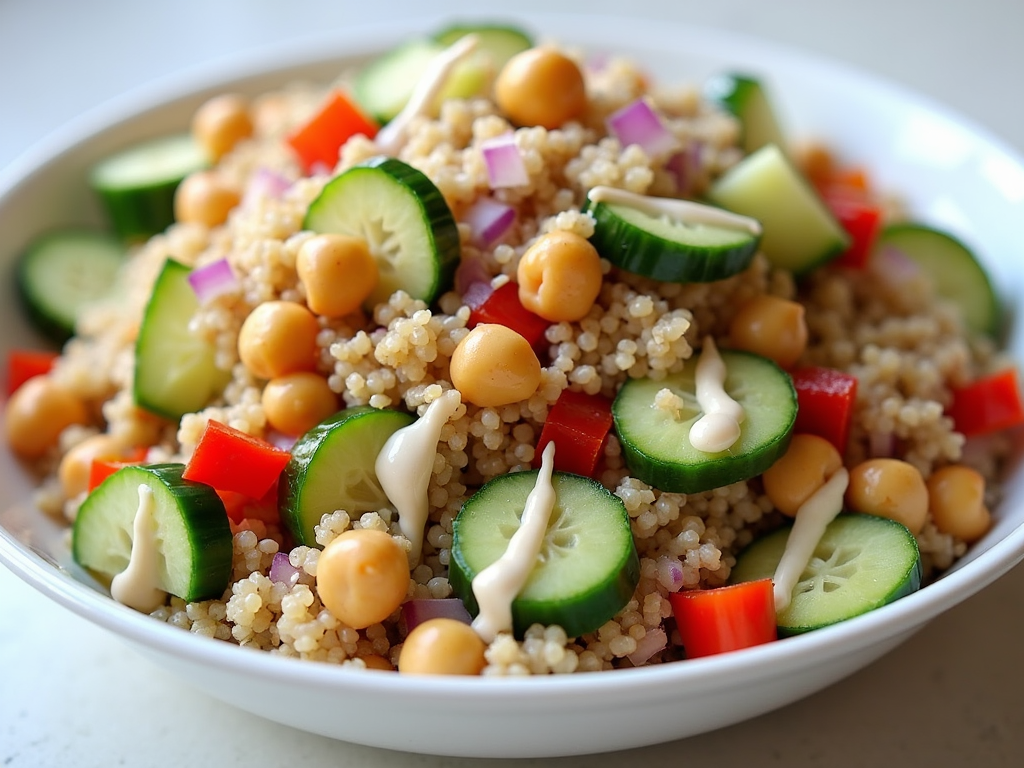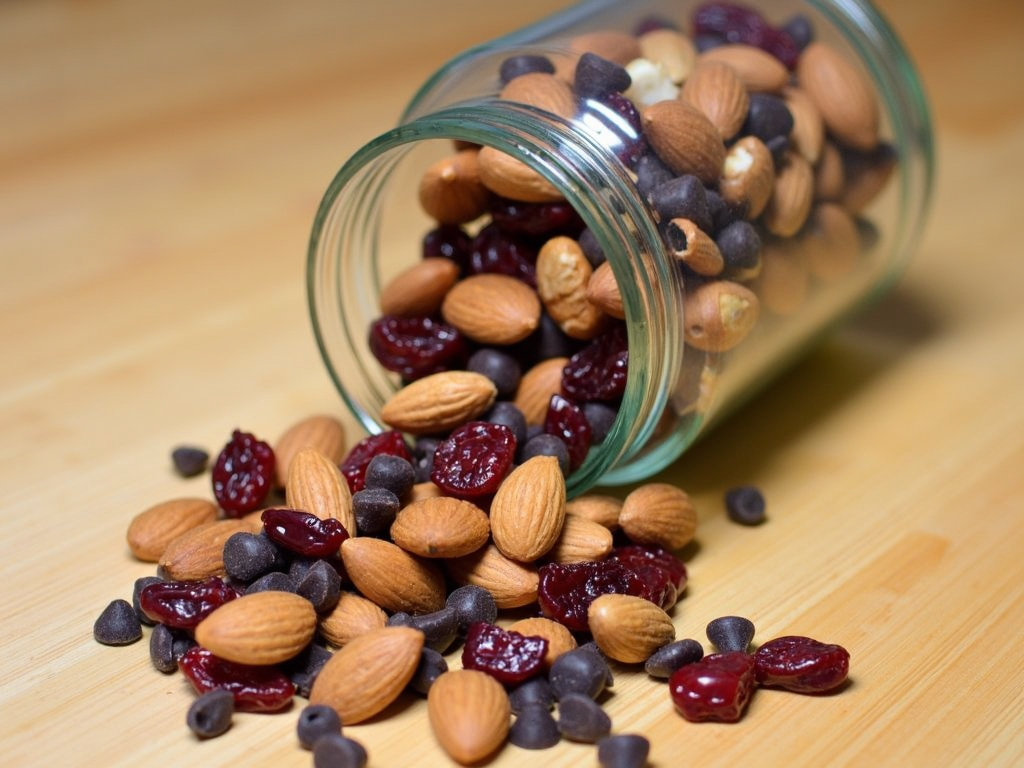Fertility-Friendly Recipes for Every Meal
April 16, 2025, 8:24 a.m.
Fertility-friendly recipes are meals designed to include ingredients that support reproductive health. These recipes focus on foods rich in essential nutrients like folic acid, iron, zinc, and antioxidants, which are known to boost fertility. Whether you're trying to conceive or just want to maintain a healthy reproductive system, incorporating these recipes into your daily meals can be beneficial. In this article, we'll explore a variety of recipes for every meal, from breakfast to dinner, and even snacks and desserts. We'll also provide tips on how to make your diet more fertility-friendly and share personal insights on the journey to better reproductive health.
Breakfast Recipes
Breakfast is the most important meal of the day, and it's a great opportunity to start your day with fertility-boosting foods. Here are a few recipes to consider:
- Avocado Toast with Eggs:
- Ingredients: Whole grain bread, avocado, eggs, spinach, and cherry tomatoes.
- Why it's fertility-friendly: Avocados are rich in healthy fats and vitamin E, which are essential for hormone production. Eggs provide protein and choline, which supports fetal development. Spinach and cherry tomatoes add antioxidants and folic acid.
-
Personal insight: I remember when I first started focusing on fertility-friendly foods, avocado toast became my go-to breakfast. It was easy to make, delicious, and I felt good knowing I was nourishing my body with the right nutrients.
-
Berry Smoothie Bowl:
- Ingredients: Mixed berries, Greek yogurt, chia seeds, and a drizzle of honey.
- Why it's fertility-friendly: Berries are packed with antioxidants, which help protect reproductive cells from damage. Greek yogurt provides protein and calcium, while chia seeds offer omega-3 fatty acids, which are crucial for hormone balance.
- Personal insight: Smoothie bowls are not only visually appealing but also a fun way to experiment with different toppings. I often add nuts and seeds for extra crunch and nutrients.

Lunch Recipes
Lunch is a great time to incorporate more vegetables and lean proteins into your diet. Here are a couple of fertility-friendly lunch ideas:
- Quinoa Salad with Chickpeas and Veggies:
- Ingredients: Quinoa, chickpeas, cucumber, bell peppers, red onion, and a lemon-tahini dressing.
- Why it's fertility-friendly: Quinoa is a complete protein and rich in fiber, which helps regulate blood sugar levels. Chickpeas provide plant-based protein and iron, while the vegetables add vitamins and antioxidants.
-
Personal insight: I love how versatile quinoa salads are. You can mix and match different vegetables and dressings to keep things interesting. Plus, it's easy to pack for lunch on the go.
-
Grilled Chicken and Avocado Wrap:
- Ingredients: Whole grain wrap, grilled chicken, avocado, lettuce, and tomato.
- Why it's fertility-friendly: Chicken provides lean protein, which is essential for reproductive health. Avocado adds healthy fats, and the whole grain wrap offers fiber and B vitamins.
- Personal insight: Wraps are a convenient and satisfying lunch option. I often make a batch of grilled chicken at the beginning of the week to use in various meals, including this wrap.

Dinner Recipes
Dinner is a time to wind down and enjoy a hearty, nutritious meal. Here are two fertility-friendly dinner options:
- Salmon with Roasted Vegetables:
- Ingredients: Salmon fillet, sweet potatoes, Brussels sprouts, and olive oil.
- Why it's fertility-friendly: Salmon is rich in omega-3 fatty acids, which support hormone production and reduce inflammation. Sweet potatoes provide beta-carotene, and Brussels sprouts offer fiber and vitamins.
-
Personal insight: I find that roasting vegetables brings out their natural sweetness, making them more enjoyable. Pairing them with salmon creates a balanced and satisfying meal.
-
Lentil and Vegetable Stir-Fry:
- Ingredients: Lentils, broccoli, carrots, bell peppers, and a soy-ginger sauce.
- Why it's fertility-friendly: Lentils are a great source of plant-based protein and iron. The variety of vegetables ensures you're getting a range of vitamins and minerals essential for fertility.
- Personal insight: Stir-fries are quick and easy to make, and you can customize them with your favorite vegetables. I like to serve this over brown rice for added fiber.

Snacks and Desserts
Snacks and desserts can also be fertility-friendly. Here are a few ideas:
- Trail Mix with Nuts and Dried Fruits:
- Ingredients: Almonds, walnuts, dried cranberries, and dark chocolate chips.
- Why it's fertility-friendly: Nuts provide healthy fats and protein, while dried fruits offer natural sweetness and fiber. Dark chocolate is rich in antioxidants.
-
Personal insight: I always keep a jar of homemade trail mix on my desk for a quick and nutritious snack. It's perfect for satisfying cravings without derailing my diet.
-
Greek Yogurt Parfait:
- Ingredients: Greek yogurt, fresh berries, and a sprinkle of granola.
- Why it's fertility-friendly: Greek yogurt is high in protein and calcium, berries provide antioxidants, and granola adds crunch and fiber.
- Personal insight: This parfait is not only delicious but also feels like a treat. I sometimes add a drizzle of honey for extra sweetness.

Tips for a Fertility-Friendly Diet
- Plan Your Meals: Take some time each week to plan your meals and make a grocery list. This ensures you have all the necessary ingredients on hand.
- Batch Cooking: Prepare larger quantities of fertility-friendly foods, like grilled chicken or roasted vegetables, to use throughout the week.
- Experiment with New Recipes: Don't be afraid to try new ingredients or cooking methods. Variety is key to a balanced diet.
- Stay Hydrated: Drink plenty of water throughout the day. Proper hydration is essential for overall health, including reproductive health.
- Limit Processed Foods: Try to avoid foods high in sugar, salt, and unhealthy fats, as they can negatively impact fertility.
Personal insight: When I started focusing on my fertility, I found that planning my meals in advance helped me stay on track. It also made grocery shopping more efficient and reduced food waste.
The Importance of a Balanced Diet for Fertility
A balanced diet is crucial for reproductive health. It provides the necessary nutrients for hormone production, egg and sperm quality, and overall well-being. Key nutrients include:
- Folic Acid: Essential for cell division and preventing birth defects.
- Iron: Supports oxygen transport and energy levels.
- Zinc: Important for hormone regulation and sperm production.
- Antioxidants: Protect reproductive cells from damage.
- Omega-3 Fatty Acids: Reduce inflammation and support hormone balance.
By incorporating a variety of fertility-friendly foods into your diet, you can ensure you're getting these essential nutrients.
Personal insight: I noticed a significant improvement in my energy levels and overall health when I started paying more attention to my diet. It was a gradual process, but the benefits were worth it.
Foods to Avoid for Better Fertility
While focusing on fertility-friendly foods, it's also important to limit or avoid certain foods that can hinder reproductive health:
- Processed Meats: High in saturated fats and preservatives, which can affect hormone balance.
- Sugary Drinks and Snacks: Can lead to insulin resistance and weight gain, both of which can impact fertility.
- Trans Fats: Found in fried foods and baked goods, can increase inflammation and affect reproductive health.
- Excessive Caffeine: High caffeine intake has been linked to fertility issues in some studies.
- Alcohol: Can disrupt hormone levels and affect fertility in both men and women.
Personal insight: Cutting back on sugary snacks was challenging for me at first, but I found healthier alternatives like fresh fruit or dark chocolate to satisfy my sweet tooth.
Mindfulness Techniques to Reduce Stress and Improve Fertility
Stress can have a significant impact on fertility, so incorporating mindfulness techniques into your daily routine can be beneficial. Here are a few techniques to consider:
- Meditation: Spend a few minutes each day focusing on your breath and clearing your mind. This can help reduce stress and promote relaxation.
- Yoga: Gentle yoga poses can help stretch and relax your body, while also improving circulation and reducing stress.
- Deep Breathing: Practice deep breathing exercises to calm your nervous system and reduce anxiety.
- Journaling: Writing down your thoughts and feelings can help you process emotions and reduce stress.
Personal insight: I found that starting my day with a short meditation session helped me feel more centered and less stressed. It was a small change, but it made a big difference in my overall well-being.
Understanding Infertility Diagnosis and Treatment Options
If you're struggling with infertility, it's important to seek professional help. A fertility specialist can help diagnose the underlying cause of infertility and recommend appropriate treatment options. Common treatments include:
- Medications: To stimulate ovulation or improve sperm quality.
- Intrauterine Insemination (IUI): A procedure where sperm is placed directly into the uterus.
- In Vitro Fertilization (IVF): A process where eggs are fertilized outside the body and then implanted into the uterus.
- Surgery: To correct anatomical issues that may be causing infertility.
Personal insight: While diet and lifestyle changes can support fertility, it's essential to work with a healthcare professional if you're facing challenges. They can provide personalized guidance and support.
Summary
Incorporating fertility-friendly recipes into your daily meals can be a delicious and effective way to support your reproductive health. By focusing on nutrient-rich foods like fruits, vegetables, whole grains, lean proteins, and healthy fats, you can provide your body with the essential nutrients it needs for optimal fertility. Remember to plan your meals, experiment with new recipes, and avoid foods that may negatively impact your fertility. With a little effort and creativity, you can enjoy a variety of tasty and nutritious meals that support your journey to better reproductive health.